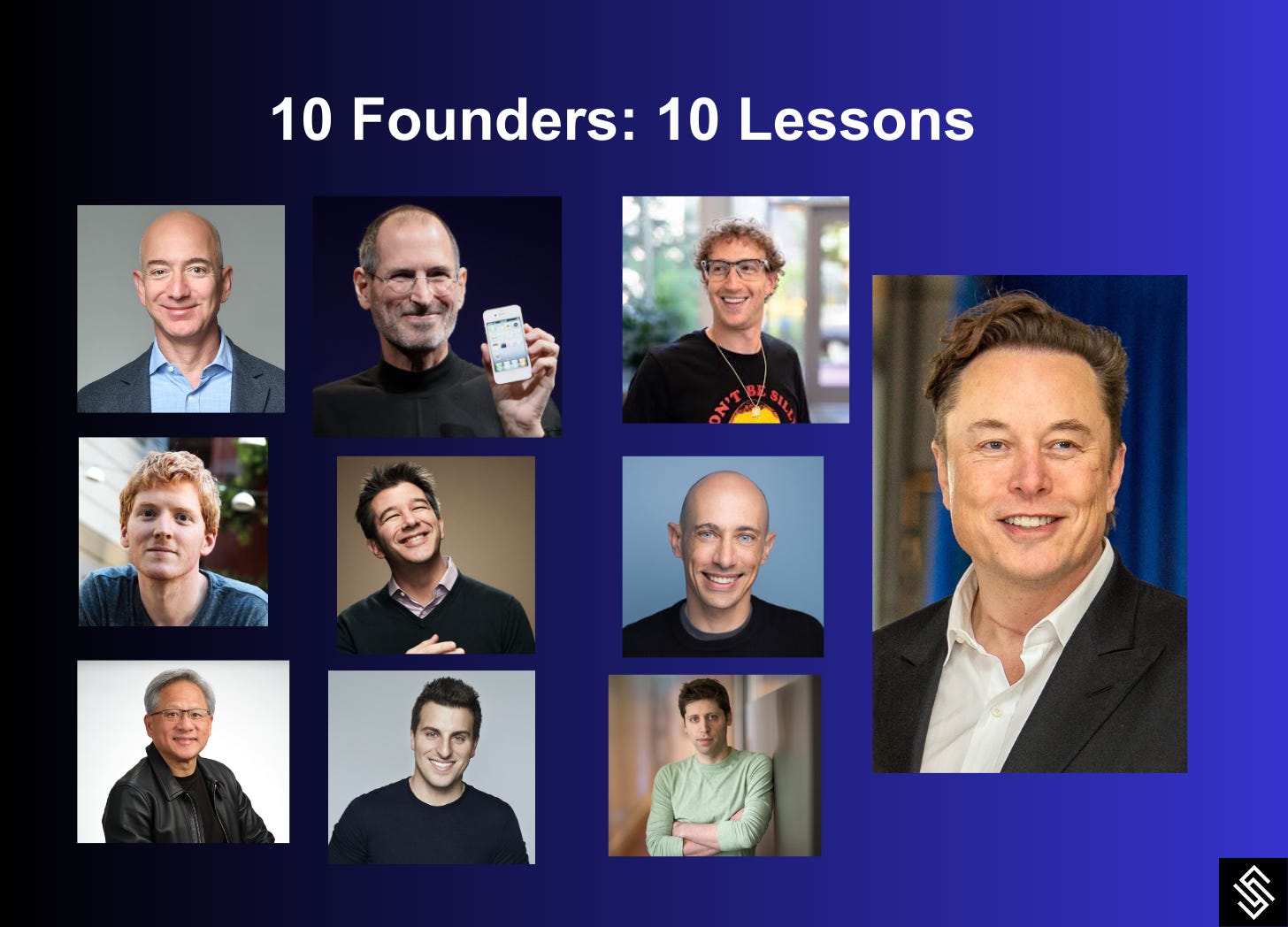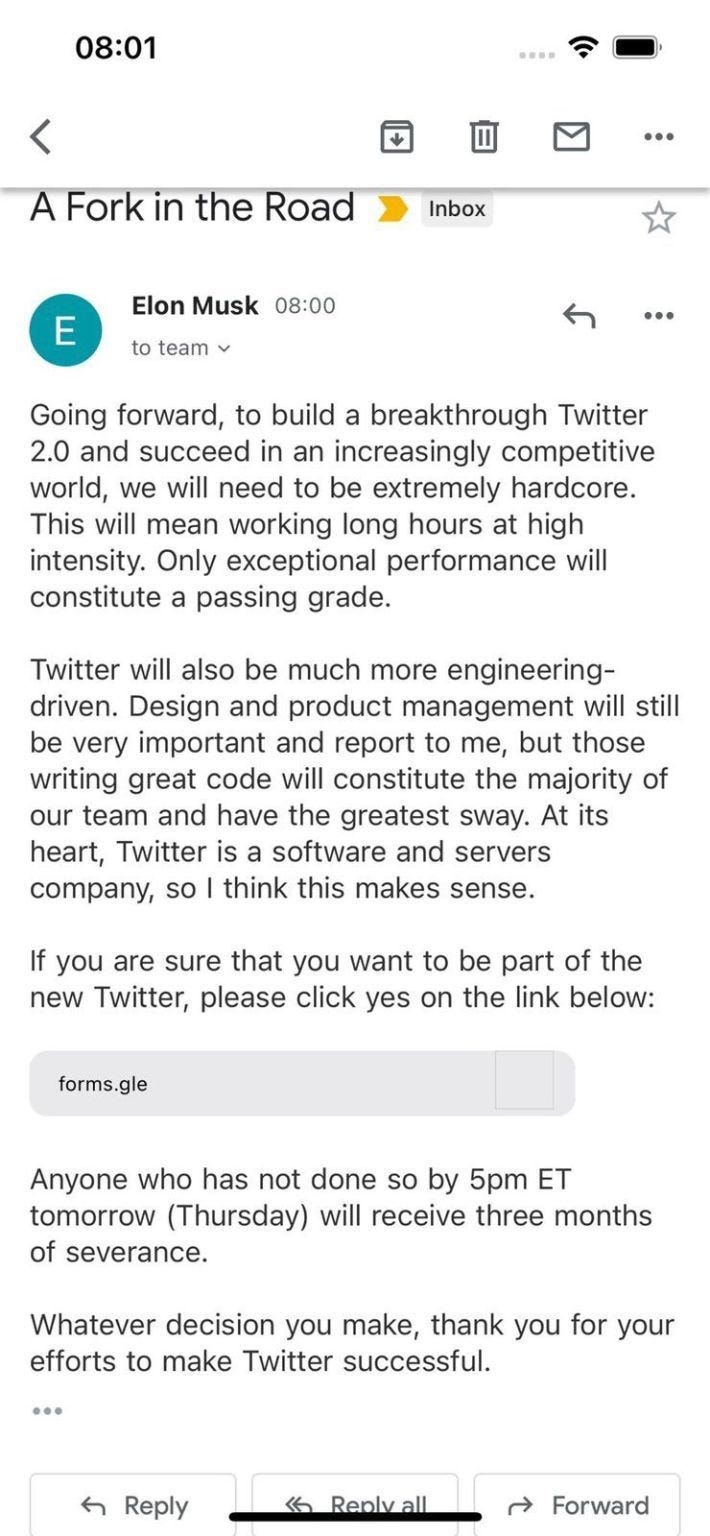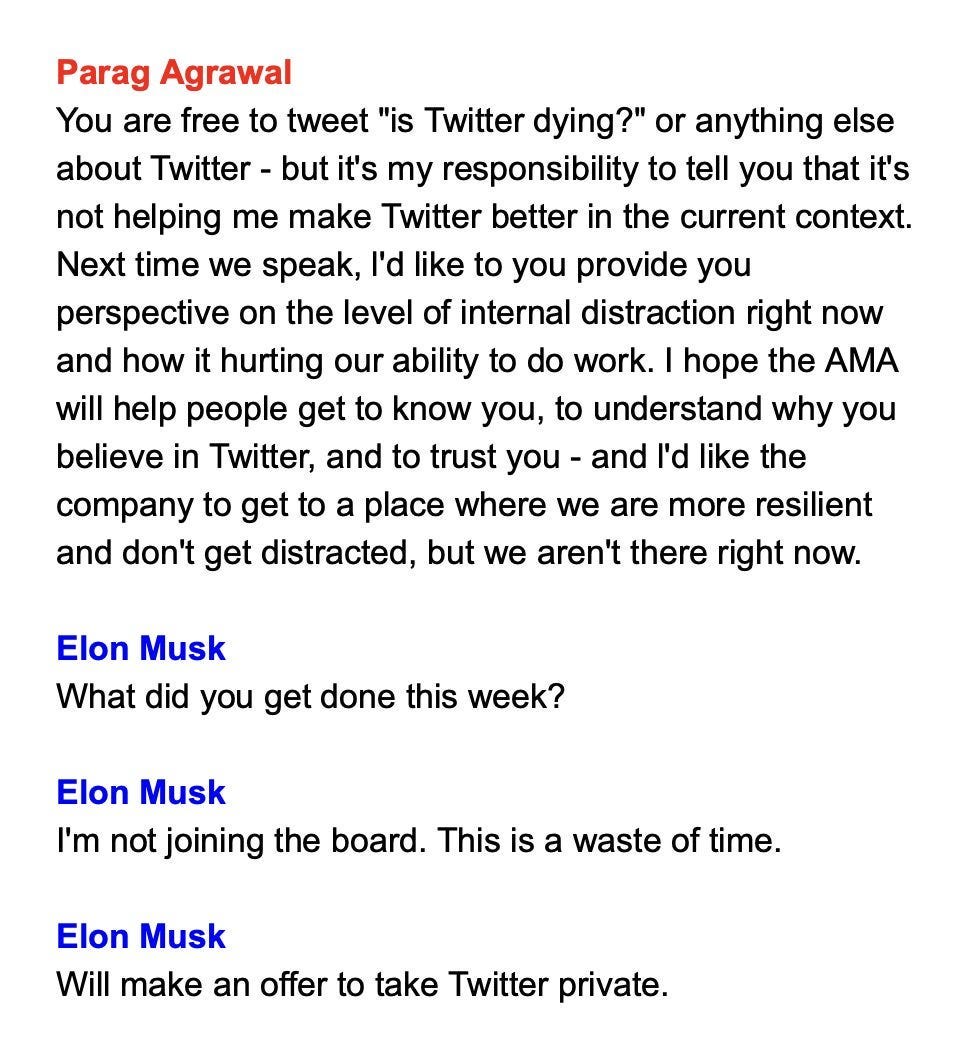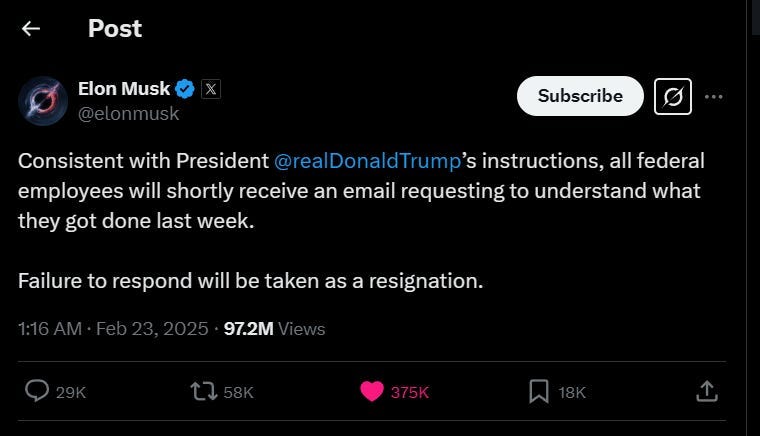After dissecting the lessons from successful and “Failed” companies, now is the time to dissect the lessons from successful “Extraordinary” founders. If you haven’t already read the previous two deep dives in this series, you can read them here and here.
The sole purpose of writing these deep dives is to learn what already works from people and companies that have done incredible things. Because here’s the point: You don’t always need to reinvent the wheel, you can study other people and companies, and steal what already works and avoid silly mistakes so you can 2x the progress while saving time, energy, and resources.
So for today’s deep dive, I’ve picked the 10 founders, exceptional founders who have done extraordinary things, built billion companies, and changed the world in some way or another.
However, each founder shares more than one lesson. But I’m only going to point out the one key lesson that I think founders and leaders should learn from them. I believe these founders have something “Unique” that sets them apart from others.
Get your popcorn ready, and let’s dive in!
1. Steve Jobs
Steve Jobs was a great founder, marketer, thinker, and most importantly, a visionary. There are so many valuable lessons founders and leaders can learn from him. But if there’s one most important thing I learned from Steve Jobs, it’s this: Do what you love.
When people think about Steve Jobs, they think about being a visionary, thinking different, and all sorts of big things. But those things come second. Doing what you love is what comes first because it’s the “Only” thing that makes all the above things possible. And frankly, Steve Jobs was a big believer in doing what you love.
Here’s why it’s important…
It’s very hard to do great work if you don’t love what you do. The only way to get good at what you do is to love what you do. This whole “Follow your passion” advice is nonsense. What you’re passionate about is what you’re good at. The real joy comes from doing what you love.
Steve Jobs’ quote also drives this home:
“Your work is going to fill a large part of your life, and the only way to be truly satisfied is to do what you believe is great work. And the only way to do great work is to love what you do. If you haven't found it yet, keep looking. Don't settle.
Forget everything. First, find what you love and work really hard to get “Insanely good” at that. Don’t like programming? Trying writing. Don’t like design? Try painting. Don’t like sports? Try making music. You know what I mean? Keep looking because the reality is, it’s really hard to keep doing what you don’t love.
One more video of Steve Jobs about doing what you love:
2. Sam Altman
I don’t know what your biggest learning is from Sam Altman seeing his work in the last few years building OpenAI. But personally, for me, if there is one thing I learned from Sam, it’s this: Ship fast.
If you’re actively educating yourself about AI and what’s going on in the AI space, you know what OpenAI has done and is doing—at speed. OpenAI’s breakthrough product ChatGPT has single-handedly changed millions of lives and transformed the world for the better.
All thanks to the CEO of the company, Sam. They iterated the product so fast, so quickly that now it’s a dominant player in AI. ChatGPT went from ChatGPT 3.5 to ChatGPT 4 to ChatGPT o1 to ChatGPT 4.5 in less than 3 years, becoming one of the powerful AI tools in no time.
See this Sam’s tweet:
While OpenAI’s competitors get stuck having back-to-back meetings, thinking through every single thing for months before building a new product, OpenAI is releasing new products and features at rocket speed, eliminating all the unnecessary things. How in the world will they not improve and dominate the industry?
Sam understands that speed matters. The company can fix GPU capacities and all the back-end things if they have a working product/feature already in place—actually, that’s what they are doing with their new feature “Ghibli.”
You can also see this same advice given by Sam in one of his 12-year-old blog posts, “Startup Advice", which was published in 2013. Read the 14th point, where he says: “Move fast. Speed is one of your main advantages over large companies.”
The lesson? Avoid perfection, ship faster than you think.
3. Jeff Bezos
Obsess over customers.
This is the lesson Jeff Bezos shares to founders and leaders. Jeff is the founder known for his obsessive nature towards understanding the customer. Still to date, anything and everything Amazon does is about making its customers' lives easier, better, and efficient.
And this shows. In meetings at Amazon with executives, Jeff would place an empty chair in front of the hall that every person in the room could see. Why? To remind people in the room that anything and everything they have to say—should be said keeping the customer in mind. This approach is also known as the Empty Chair Strategy at Amazon, which I’ve talked about in this deep dive.
Amazon also has this thing called the “2-Pizza Rule,” which promotes the idea that no team should be big enough that it can’t be fed with 2 pizzas. Meaning, at Amazon teams are small because Jeff believes small teams are more efficient, productive, and less chaotic, making it easier for the employees to do what matters the most—usually solving customers’ problems.
You can also see Jeff Bezos’ customer obsession in Amazon’s annual shareholder letters. He would usually start the writing focusing on customers and then probably also end the letter talking about customers. Even Amazon says itself: Its goal? Our goal is to be Earth’s most customer-centric company.
A few more things Jeff has said about customer obsession:
"We’re not competitor obsessed, we’re customer obsessed. We start with what the customer needs and we work backwards.
"If you make customers unhappy in the physical world, they might each tell six friends. If you make customers unhappy on the Internet, they can each tell 6,000.
Or, for example watch this video:
The lesson? If you’re a company heavily focused on customers, there is no way you’re not going to be successful. The successful companies are the ones that focus and care for their customers—at any given point—no matter how hard things and situations get.
4. Patrick Collison
If you have recently started your company, this is going to be a really good piece of advice for you on hiring. Here's what you need to know: One of the things Stripe did well in the early days was, they waited long enough to hire the first few employees.
There are several reasons for this. But one of the things I really believe is that when you start a company, first, before you hire a single employee, you, as a founder and leader of the company, should learn to do all the important things in the first place.
Because once you learn how things are done, you can give feedback to your employees and improve things in real time together. You wouldn’t be saying “I don’t know…That’s your job, do that.”
The second thing is, the first few employees you hire happen to be very, very important for the company's success. So if by mistake, if you hire the wrong people, they’ll take the company in the wrong direction—probably to obscurity, which of course, you don’t want, right?
This means, simply wait and take time to hire. Recruiting is one of those things that you should do well, it’s the thing that truly shapes the company's success, where the company would go, and whether it’ll survive or not in the long run.
The lesson? Hire slow.
Watch Patrick talking about hiring:
5. Jensen Huang
We all know that Jensen, the co-founder and CEO of NVIDIA, is an exceptional leader. And one of his leadership quality traits that I got to know about is: He doesn’t like firing people. Sounds uncomfortable, right? Let’s talk through it.
Most founders and leaders are short-tempered—when something unexpected happens or an employee makes a mistake, they fire them immediately without thinking twice. And I personally think it’s the wrong way to do things.
Jensen doesn’t do it. He says, “I’d rather torture you to greatness than fire you.” Don’t fire the employee. Give them a chance to learn, to improve. Because there is no guarantee that if you hire a new employee after firing the existing one, they will not make the same mistake.
However, as the saying goes, “Fool me once, shame on you; fool me twice, shame on me.” Of course, you should fire the employee if they make the same mistake again and again. But guess what…if you hire really smart people in the first place, they won’t make the same mistake over and over.
Don’t fire, torture them to greatness.
6. Elon Musk
Love him or hate him but Elon Musk is one of the greatest entrepreneurs alive. The guy makes electric cars, builds reusable rockets, puts chips into the humans’ brains, and recently developed the most advanced AI tool, Grok.
His achievements are unparalleled.
So what can we learn from the guy? Elon offers many lessons for founders and leaders, but if there is one thing I’ve learned from him, it’s this: Efficiency is all that matters. He is known for being efficient in his companies and in general also in life.
To drive this home, let me share a few stories and examples.
When Elon bought Twitter in 2022, did you know what was the first thing he did? He reduced the workforce by 80%, with nearly 6000 Twitter employees losing their jobs overnight.
There are two reasons why he did this: first, Twitter was losing $4 million daily, so they had to save money. Second, Elon wanted to increase efficiency by only letting talented, hard-working people build Twitter 2.0. This was the email he sent to Twitter employees before firing them:
Elon is extremely hard-working. Reports claim that Elon works 80-100 hours per week, including Saturdays and Sundays. This intense work ethic inspires his team, employees, and leaders to do the same.
That's also why you may have heard about Tesla or SpaceX's toxic work culture—employees often working long hours at night. Although this is good for Elon, but not very good for employees and his teams.
This chat between Elon with the former CEO of Twitter, Parag Agrawal is also a perfect example of how he thinks about being efficient:
Moreover, it’s the same thing again with DOGE. He believes that most of the government employees are just taking advantage of the government's “Free” money while contributing nothing to the country. And this is why Elon and Trump reduced the government officials, agencies, teams, and reduced the large workforce to increase efficiency. He tweeted about this on February 23rd, resulting in more than 30,000 employees losing their jobs within a week.
How does it help him run and manage his companies?
When you’re running multiple billion-dollar companies, the more hard-working people you have in your organization and company, the more efficient you become because the less you have to manage them. Elon understands this. The first step is to hire and bring in the most talented and hard-working people, and let them do their job without intensely managing them
7. Tobi Lutke
Tobi Lutke is the co-founder and CEO of Shopify. And one of the biggest lessons I learned from Tobi Lutke is that “You don’t need to be in 'Zone' to build a multi-billion dollar company.
Shopify is the second-largest publicly traded company in Canada with a total market cap of over $200 billion. The company has also raised the least amount of VC money—a total of $122 million while achieving this success.
Now here is the thing: Most founders or in general, people assume that in order to build a multi-billion-dollar company like Shopify, they must belong to Silicon Valley and raise a ton of capital—probably billions—which couldn’t be further from the truth.
Shopify has proved these things wrong. And if Shopify can do this and dominate in the US while being a Canadian company, why don’t you, why can’t your company? This excuse doesn’t make any sense. The reality is, you don’t need to belong to Silicon Valley or raise a ton of VC money to build a successful company like Shopify.
However, you have to be strategic about the decisions you make. But I do believe, especially in the era of AI, it’s completely possible. One thing I’d say is though, try to be profitable from Day 1 because it’s the only thing that’ll help you SCALE your company.
8. Brian Chesky
You might have heard about Founder Mode, a famous essay written by Paul Graham all because of Brian Chesky's talk at the Y Combinator event last year in 2024.
What’s the idea of Founder Mode? The traditional way to manage a (Big) company is to hire a bunch of middlemen—executives, managers, team leaders, etc—and let them do the work without you—the founder.
Brian Chesky tried this way of managing Airbnb, but it didn’t work. So what did the guy do? He studied other successful founders and companies like Apple, and imitated how Steve Jobs ran Apple in his time.
Founder Mode is the idea that instead of relying on managers and executives about the project and things the teams are working on, you actually get involved in things that are important, and build & help the team get the project done in real time.
This is what Chesky now does, and it’s the lesson I’ve learned from him: Get involved.
If you want to manage your company in the most efficient way, you must be involved in the things, decisions, and projects that are important for the company. This accelerates the company's growth, and you get to learn so much more about your company and how things are actually done on a fundamental level.
Now, of course, you can’t be actually involved in every single decision or project, especially when you are running a million-dollar or billion-dollar company. But you, as a founder, it’s your job to get involved in the things that may move the needle for the company and accelerate its growth.
This video is a masterclass in Founder Mode:
9. Mark Zuckerberg
What’s the difference between 2015 vs 2025 Zuck?
Nothing, except he changed the way he looks and just moves his head more often when talking these days. Of course, people assumed that he was just a “Robot” with no feelings whatsoever because of the way he looked and talked, which couldn’t be further from the truth.
Now seeing these images—the old and new Zuck, you might think, “Oh, so he became a new personality.” And the reality is, he didn’t. He is the same guy he was 10 or 15 years ago with just a new stylish haircut and outfit.
What the heck am I talking about? Zuck loves himself. Moreover, to become more likable to others, he just did what a smart person would do. In 2014, he wrote these four bullet points in the chalkboard:
Love yourself.
Only then can you truly serve others.
Focus on what you can control.
For those things, never give up.
It’s not that he didn’t like himself before 2014 or it’s not that he wasn’t caring about the people he loved. It’s just that the way he talked and looked, the internet created a wrong image of him that he wasn’t even in the first place in real life.
The point? Mark is really a good human being.
And that’s my lesson from him—those four bullet points. First, love yourself, take care of your body, and do all the things that make you a good human being. Because without that, it’s hard to love others or even serve other people and your customers.
Second, focus on what you can control. We often get caught up in things far beyond our control. But the reality is, things that are not in your control only make you worry. So, focus on what you can actually control and double down on that.
To be a good founder and leader, first become a good human being.
10. Travis Kalanick
I’ve already written a deep dive on Uber a while ago. And studying the company has taught me who the co-founder and the former CEO of the company, Travis Kalanick truly is.
I don’t think Uber would’ve become what it is today if Travis weren’t the co-founder and the CEO of the company when they first started it. Because here’s the reality: Whether you like it or not, Travis is a hardcore guy who doesn’t believe in competition.
And this is the lesson: Crush your competitors.
Let me tell you a few things (stories) that will drive this home: It was around 2012, Uber had just picked up its growth, and at the same time, there came Lyft. You know what Uber did to Lyft to destroy it? Uber treated Lyft like trash under the leadership of Travis Kalanick.
First: Uber’s employees would create fake Lyft accounts, book a ride, and then cancel the ride at the last minute to make the experience really bad for Lyft drivers.
Second: Uber would reach out and hire Lyft’s talented engineers by offering them higher salaries and premium bonuses.
Third: Uber would encourage Lyft’s drivers to leave the company and join Uber by claiming they would earn more money and work less.
Fourth: Travis would personally call Lyft’s investors and try to manipulate them so that Lyft wouldn’t get the investors’ money.
These are just a few, there are many incidents like these. Under the leadership of Travis, Uber treated Lyft like trash. I can’t find the exact video, but I remember writing the Uber piece and came across a video or article where he said something that goes like this (paraphrasing): "I don't believe in competition, there should be just one, Uber.”
Pretty mind-boggling, right? Sorry, I can't find the reference ;)
However, you get the idea. But isn’t it good? Well, you don’t have to do what Uber did to Lyft under Travis' leadership. Because let’s be honest, competition is a good thing as it drives innovation and provides a better service to customers. The name of the game is competition, and you have to compete at some point or another. But the key thing is, it’s your job to keep out-competing your competitors if you really want to dominate your industry.
If you run a startup or company and are looking for partnership opportunities, fill out this Google Form to sponsor Startup Synergy and I’ll send you more details about the newsletter and partnership.
Thanks for reading, catch you on the next one.










One thing I love about this collection is how it really showcases the successful passion entrepreneurs must bring to their work. I've never met a successful startup leader who says "eh, it's a job. I clock in, get my check, and clock out."